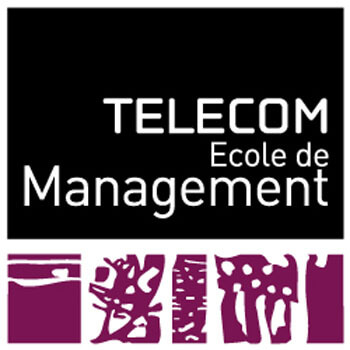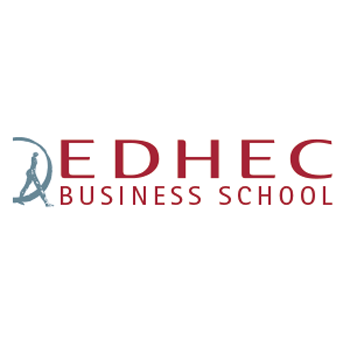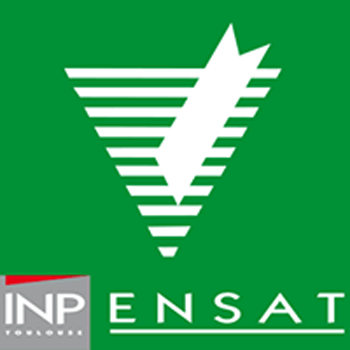Sciences Po Paris

Founded: 1872
Address: 27, rue Saint Guillaume - Paris, France
Phone: +331 45495191
Address: 27, rue Saint Guillaume - Paris, France
Phone: +331 45495191
Here you find out Sciences Po Paris complete information about fees, location, degree Sciences Po Paris offers, number, website, and much more. Sciences Po Paris is a leading university in Paris - France.
You can also find out jobs at Sciences Po Paris for students, teachers, and professors. We also update the database for an internship at Sciences Po Paris for students.
Sciences Po is an international research university, both selective and open onto the world, ranking among the finest institutions in the fields of humanities and social sciences.
Sciences Po stands out for combining approaches and confronting different worldviews. This tradition of diversity and multidisciplinary approach makes Sciences Po an active participant in public debate, a forum... where thought meets action.
Sciences Po"s overarching mission is to educate future leaders in the public and private sectors. However, its ambition extends even further: to educate open-minded and enlightened citizens capable of changing the world and transforming society.
Sciences Po"s international dimension was established in its founding documents. Driven forward by this vocation for nearly 150 years, today Sciences Po stands out as a world-class university: internationally-recognised degrees and research, a multicultural community and a worldwide network of partners.
At Sciences Po, the finest researchers in the social sciences engage in continual dialogue with the greatest practitioners. With an academic community of more than 4,000 academics including 2,400 practitioners, the knowledge we transmit to students is nurtured by innovative research and rooted in reality.
Sciences Po recruits its students on the basis of academic excellence. Nevertheless, it was one of the first institutions of higher learning to have fully assumed its social responsibilities by promoting intellectual, geographic and social diversity in its student body. Open to all talents, Sciences Po recruits students in nearly 150 countries and provides financial support to 27 % of its student body.
Sciences Po is a research university in the social sciences, internationally recognised for the quality of its scientific output. Developed with a strong focus on society, research conducted at Sciences Po enriches public debate.
Since it was founded nearly 150 years ago, Sciences Po has never stopped reinventing itself. More than anything, Sciences Po today is a place where new ideas can be put forward and implemented. Educational methods, academic openness, inventive tools: this flair for innovation is one of our trademarks.
Sciences Po aims to offer education firmly rooted in five social science disciplines: economics, law, history, sociology and political science. It stands out for a multidisciplinary approach and a focus on students" ability to understand and analyse complexity. This is an indispensable quality to move forward in constantly changing environments.
At Sciences Po, academic knowledge goes hand in hand with professional development, and general knowledge complements a sense of action. Students are encouraged to assume responsibility thanks to the teaching of more than 4,000 academics including 2,400 practitioners, (corporate executives, senior French and international civil servants, etc.) and internships, which are an integral part of the students" course of study.
At Sciences Po, an international spirit pervades every dimension of academic and student life: learning to work as early as possible with classmates from different cultural backgrounds and in different languages; developing a broader worldview thanks to compulsory year-long study-abroad programmes; studying every subject essential to understanding Europe and the world.
Breaking down borders between disciplines also means introducing new perspectives: the arts and natural sciences are an integral part of the intellectual experience at Sciences Po.
To prepare students for a continually changing world, education at Sciences Po aims to develop specific qualities: intellectual curiosity and agility, an aptitude for oral and written expression, as well as adaptability.
At Sciences Po, academic and personal development are intimately linked. Intellectual curiosity, critical thinking skills and self-examination: these are the aptitudes and attitudes developed throughout the course of study. These qualities are continuously cultivated through teamwork, student presentations, small classes, debates and participation in student associations.
The École Libre des Sciences Politiques (ELSP) was founded in 1872 by Émile Boutmy in response to the political and moral crisis in France in the aftermath of the 1870 Franco-Prussian War. It was intended to educate the new elite and generate modern knowledge for a new France.
Sciences Po possesses three unique qualities in French higher education. Thanks to its status as a private institution incorporated as a joint stock company, it had the freedom to choose its students, faculty members and programmes.
For 35 years, from 1871 to 1906, Émile Boutmy made his mark on the École Libre des Sciences Politiques. A young man lacking wealth and reputation, but gifted with a flair for entrepreneurship, the “magnificent educator” and founding father of Sciences Po created a school that was to become the “crossroads of the ruling classes”.
Thanks to its innovative educational model, the university instituted an interactive form of pedagogy in the form of lectures bringing together small groups of students and instructors from the senior ranks of the French civil service and the business world, as well as academics.
Thanks to its scientific ambition, it implemented a pluralistic approach to “political sciences” (law, history, sociology, geography, economics) and an original focus on contemporary and foreign societies, thereby linking research and practical teaching.
Following its founding period, the École libre refocused its efforts on preparing students for competitive examinations providing access to leading public institutions, as well as for careers in business.
In 1945, Sciences Po was partially nationalised and divided into the Fondation Nationale des Sciences Politiques (FNSP) and the Institut d’Etudes Politiques (IEP) (lien vers la page gouvernance). Sciences Po nevertheless retained its independence. This autonomy, repeatedly confirmed by national authorities, has made Sciences Po a laboratory of innovative institutional, educational and scientific ideas.
Although it hosted foreign students as of the 1920s and 1930s, Sciences Po became a pioneer in international openness in 1999, instituting a five-year degree programme inspired by the Bachelor-Master-PhD model. Having included in its programme a requirement that students spend a year abroad, it forged partnerships with prestigious universities throughout the world.
Also a pioneer in terms of equal opportunity initiatives, in 2001 Sciences Po introduced special procedures for entrance examinations: the Equal Opportunity and Diversity Programme. This programme contributed to increasing social diversity in the student body.
Finally, in the late 2000s Sciences Po proved its ability to reinvent its approach to education and research, investing in pioneering fields of political science, international relations, sociology of organisations and post-1945 history, as well as political arts, scientific humanities and digital studies.
Always true to its original mission of promoting dialogue among scientific and applied knowledge, Sciences Po has maintained its unique identity as a prestigious institution of higher learning for the elite and a world-class research university in the field of social sciences.
You can also find out jobs at Sciences Po Paris for students, teachers, and professors. We also update the database for an internship at Sciences Po Paris for students.
Sciences Po is an international research university, both selective and open onto the world, ranking among the finest institutions in the fields of humanities and social sciences.
Sciences Po stands out for combining approaches and confronting different worldviews. This tradition of diversity and multidisciplinary approach makes Sciences Po an active participant in public debate, a forum... where thought meets action.
Sciences Po"s overarching mission is to educate future leaders in the public and private sectors. However, its ambition extends even further: to educate open-minded and enlightened citizens capable of changing the world and transforming society.
Sciences Po"s international dimension was established in its founding documents. Driven forward by this vocation for nearly 150 years, today Sciences Po stands out as a world-class university: internationally-recognised degrees and research, a multicultural community and a worldwide network of partners.
At Sciences Po, the finest researchers in the social sciences engage in continual dialogue with the greatest practitioners. With an academic community of more than 4,000 academics including 2,400 practitioners, the knowledge we transmit to students is nurtured by innovative research and rooted in reality.
Sciences Po recruits its students on the basis of academic excellence. Nevertheless, it was one of the first institutions of higher learning to have fully assumed its social responsibilities by promoting intellectual, geographic and social diversity in its student body. Open to all talents, Sciences Po recruits students in nearly 150 countries and provides financial support to 27 % of its student body.
Sciences Po is a research university in the social sciences, internationally recognised for the quality of its scientific output. Developed with a strong focus on society, research conducted at Sciences Po enriches public debate.
Since it was founded nearly 150 years ago, Sciences Po has never stopped reinventing itself. More than anything, Sciences Po today is a place where new ideas can be put forward and implemented. Educational methods, academic openness, inventive tools: this flair for innovation is one of our trademarks.
Sciences Po aims to offer education firmly rooted in five social science disciplines: economics, law, history, sociology and political science. It stands out for a multidisciplinary approach and a focus on students" ability to understand and analyse complexity. This is an indispensable quality to move forward in constantly changing environments.
At Sciences Po, academic knowledge goes hand in hand with professional development, and general knowledge complements a sense of action. Students are encouraged to assume responsibility thanks to the teaching of more than 4,000 academics including 2,400 practitioners, (corporate executives, senior French and international civil servants, etc.) and internships, which are an integral part of the students" course of study.
At Sciences Po, an international spirit pervades every dimension of academic and student life: learning to work as early as possible with classmates from different cultural backgrounds and in different languages; developing a broader worldview thanks to compulsory year-long study-abroad programmes; studying every subject essential to understanding Europe and the world.
Breaking down borders between disciplines also means introducing new perspectives: the arts and natural sciences are an integral part of the intellectual experience at Sciences Po.
To prepare students for a continually changing world, education at Sciences Po aims to develop specific qualities: intellectual curiosity and agility, an aptitude for oral and written expression, as well as adaptability.
At Sciences Po, academic and personal development are intimately linked. Intellectual curiosity, critical thinking skills and self-examination: these are the aptitudes and attitudes developed throughout the course of study. These qualities are continuously cultivated through teamwork, student presentations, small classes, debates and participation in student associations.
The École Libre des Sciences Politiques (ELSP) was founded in 1872 by Émile Boutmy in response to the political and moral crisis in France in the aftermath of the 1870 Franco-Prussian War. It was intended to educate the new elite and generate modern knowledge for a new France.
Sciences Po possesses three unique qualities in French higher education. Thanks to its status as a private institution incorporated as a joint stock company, it had the freedom to choose its students, faculty members and programmes.
For 35 years, from 1871 to 1906, Émile Boutmy made his mark on the École Libre des Sciences Politiques. A young man lacking wealth and reputation, but gifted with a flair for entrepreneurship, the “magnificent educator” and founding father of Sciences Po created a school that was to become the “crossroads of the ruling classes”.
Thanks to its innovative educational model, the university instituted an interactive form of pedagogy in the form of lectures bringing together small groups of students and instructors from the senior ranks of the French civil service and the business world, as well as academics.
Thanks to its scientific ambition, it implemented a pluralistic approach to “political sciences” (law, history, sociology, geography, economics) and an original focus on contemporary and foreign societies, thereby linking research and practical teaching.
Following its founding period, the École libre refocused its efforts on preparing students for competitive examinations providing access to leading public institutions, as well as for careers in business.
In 1945, Sciences Po was partially nationalised and divided into the Fondation Nationale des Sciences Politiques (FNSP) and the Institut d’Etudes Politiques (IEP) (lien vers la page gouvernance). Sciences Po nevertheless retained its independence. This autonomy, repeatedly confirmed by national authorities, has made Sciences Po a laboratory of innovative institutional, educational and scientific ideas.
Although it hosted foreign students as of the 1920s and 1930s, Sciences Po became a pioneer in international openness in 1999, instituting a five-year degree programme inspired by the Bachelor-Master-PhD model. Having included in its programme a requirement that students spend a year abroad, it forged partnerships with prestigious universities throughout the world.
Also a pioneer in terms of equal opportunity initiatives, in 2001 Sciences Po introduced special procedures for entrance examinations: the Equal Opportunity and Diversity Programme. This programme contributed to increasing social diversity in the student body.
Finally, in the late 2000s Sciences Po proved its ability to reinvent its approach to education and research, investing in pioneering fields of political science, international relations, sociology of organisations and post-1945 history, as well as political arts, scientific humanities and digital studies.
Always true to its original mission of promoting dialogue among scientific and applied knowledge, Sciences Po has maintained its unique identity as a prestigious institution of higher learning for the elite and a world-class research university in the field of social sciences.
Read More
Details:
LeaderShip: President: Frederic Mion
Fees:
Time:
Phone Number: +331 45495191
City: Paris
Fees:
Time:
Phone Number: +331 45495191
City: Paris
Timing:
Country: France
Staff:
Website: http://www.sciencespo.fr
Country: France
Staff:
Website: http://www.sciencespo.fr
Subjects:
Jobs in Sciences Po Paris
Currently, there is no job opening in Sciences Po Paris as per our database.



















Leave a Reply